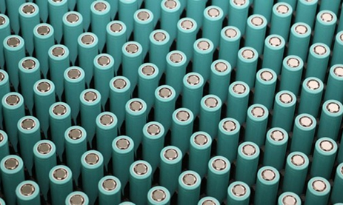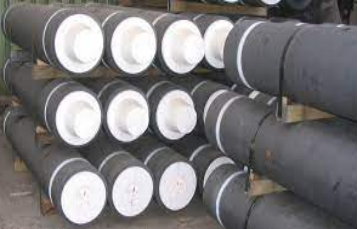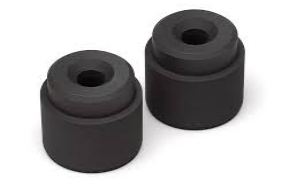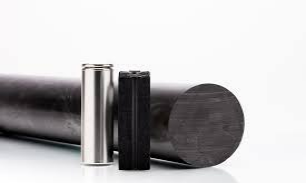Graphite as a Battery Electrode: Advantages and Improvements Leading the Development of Future Energy Storage
Graphite is an excellent electrochemical material widely used in fields such as aluminum electrolysis, lithium-ion batteries, fuel cells, and supercapacitors. In lithium-ion batteries, graphite serves as the harmful electrode material, providing high energy density, long lifespan, and fast charging and discharging speed. Compared with traditional battery electrode materials, graphite has higher conductivity and chemical stability, as well as higher mechanical strength. In the negative electrode material of lithium-ion battery, the layered structure of graphite can provide good ion and electronic conductivity, thereby improving the electrochemical performance of the battery.

There are many advantages of graphite as a battery electrode include the following:
High conductivity: The conductivity of graphite is excellent, which can effectively transfer current and make the charging and discharging speed of the battery faster.
High chemical stability: Graphite can maintain stable chemical properties in high temperature, high pressure, and high humidity environments, making it less prone to reactions. Therefore, graphite electrodes can work stably for a long time.
High mechanical strength: Graphite electrodes have high mechanical strength, which can maintain structural stability during charging and discharging processes and are not prone to cracking or fracture.
Low cost: The preparation cost of graphite is fairly low and can be produced on a large scale, so the price of graphite electrodes is relatively affordable.
Environmentally friendly: Graphite is a natural mineral that does not contain substances unasfe to human health and the environment, so using graphite electrodes is more ecologically friendly

Graphite electrodes are usually made of high-purity natural or artificial graphite. Among them, artificial graphite is obtained by high-temperature graphitization of graphite fossils or other raw materials. These raw materials usually include graphite fossils, coke, petroleum coke, etc., which form graphite crystals after high-temperature treatment. Subsequently, the graphite crystal powder is pressed into shape and then subjected to high-temperature graphitization treatment to create a graphite electrode ultimately.
The excellent propertis of graphite electrodes such as high temperature stability, low electrochemical reactivity, and high chemical stability have made it widely used in fields such as aluminum electrolysis, lithium-ion batteries, and fuel cells. Among them, aluminum electrolysis is one of the main application fields of graphite electrodes. Aluminum electrolysis is a necessary aluminum production process in which graphite electrodes play a crucial role. Graphite electrodes need to have high temperature stability, high conductivity, and chemical stability to meet the production requirements of aluminum electrolysis.
In addition to aluminum electrolysis, graphite electrodes are widely used in fields such as lithium-ion batteries and fuel cells. Lithium-ion batteries are a significant energy storage device in which graphite electrodes play the role of harmful electrode materials. The high conductivity and specific surface area of graphite electrodes make them an ideal harmful electrode material for lithium-ion batteries. At the same time, graphite electrodes also have good cycling performance and stability, which can meet the requirements for a long life of lithium-ion batteries.
Fuel cells are a fundamentally new energy technology in which graphite electrodes play a crucial role. As an anode material for fuel cells, graphite electrodes need high conductivity, high catalytic activity, and stable chemical properties. Graphite electrodes have excellent conductivity and catalytic activity and can withstand extreme conditions such as high temperature, high pressure, acid and alkali, making them widely used in fuel cells.

Although graphite electrodes have many excellent properties, some areas are worth improving in practical applications. For example, in aluminum electrolysis, graphite electrodes are affected by oxidation and corrosion, resulting in a shortened electrode life. To solve these problems, people continuously improve and optimize graphite electrodes. For example, high-purity graphite materials, surface treatment, and changing electrode structure can be used to improve the performance of graphite electrodes.
In addition, graphite as a battery electrode also has other disadvantages.
The small interlayer spacing increases the diffusion resistance of lithium ions and results in poor rate performance. During rapid charging, lithium ions are prone to deposit on the surface of graphite to form lithium dendrites, leading to serious safety hazards.
Although graphite has good thermal conductivity, it can effectively reduce temperature gradients and avoid generating too much thermal stress. However, during high current charging and discharging processes, the temperature rise of the electrodes is still relatively high, affecting the battery's reliability and safety.
To improve the disadvantage of graphite as a battery electrode, the following measures can be taken:
To address the issues of small interlayer spacing and poor lithium ion diffusion resistance and rate performance of graphite, modification treatments can be carried out, such as spheroidization, surface treatment, and doping modification. These methods can improve the interlayer structure and performance of graphite, enhance the diffusion efficiency and rate performance of lithium ions, and thus improve batteries' charging and discharging performance.
To address the issue of high temperature rise in graphite electrodes, measures such as optimizing electrode structure and adding heat dissipation devices can be taken to reduce electrode temperature and improve the reliability and safety of batteries.

Supplier
Graphite-crop corporate HQ is a high tech enterprise committed to the research and development, production, processing, sales and technical services of Silicon materials, we are high quality silicon supplier. Our Company has a diversified product structure with silicon carbon materials, and other negative materials (graphite materials, etc.). Please feel free to contact us. Or click on the needed products and send us an inquiry: sales@graphite-corp.com







